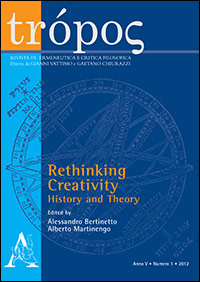The Philosopher Child
At the Origins of Creativity
DOI:
https://doi.org/10.13135/2036-542X/7621Keywords:
Philosophy, children, creativity, Mattew Lipman, inquiryAbstract
The aim of this paper is to focus an aspect of philosophical creativity that generally receives little attention, namely that connected to childhood and the cognitive processes in infancy and adolescence. Which dimensions of thinking control children’s philosophically creative ability? Our work offers a possible viewpoint, starting from the works of some contemporary authors interested in the childhood thinking process. The outcomes of their research converge on a recognition of philosophical creativity in childhood, and the possibility of arriving at an experimental description. We borrow the concept of philosophical creativity from the works of Matthew Lipman, founder of the philosophical and pedagogical method called Philosophy for Children (P4C), which emphasises the ability of multidimensional thinking skills to activate themselves in a community of inquiry. P4C underlines the dual importance of thinking: on the one hand, argumentative, critical and rational; on the other hand, narrative, creative, and imaginative. There is no contrast between critical arguing using intersubjective criteria to make judgements, and creativity as construction of alternative meanings.


